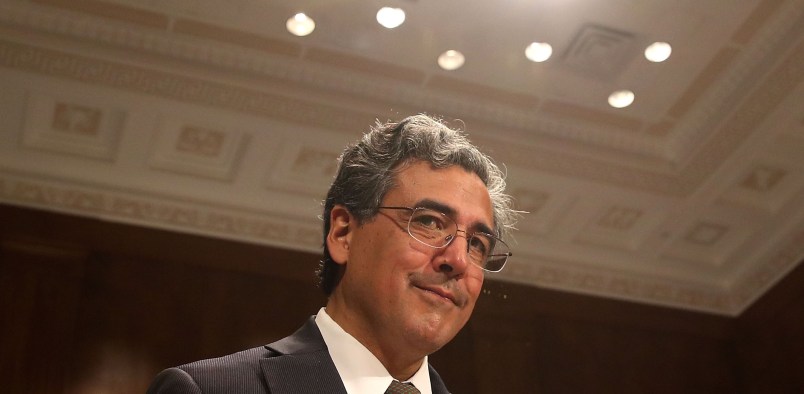The Department of Justice boldly and explicitly asked the Supreme Court on Tuesday to resolve an issue the court hasn’t formally reviewed in the census citizenship case when the justices hand down their decision in the case expected this week.
The request, which the Justice Department has made in a more subtle fashion in previous court filings, is extraordinary and reflects the highly unusual legal battle the Trump administration has engaged in to change the 2020 census.
The Justice Department request came in the form of a letter to the court submitted just a few hours after an appeals court said new evidence warranted the reexamination of a case challenging the citizenship question brought in Maryland.
The Maryland case was not the case in front of the Supreme Court when it was briefed on the question’s legality this year. And the claim that is now being reconsidered by a federal judge in Maryland — that the question was added to the census with a discriminatory intent – was not one of the questions formally in front of the justices. The Department of Justice briefly referenced it in one of their pleadings in the Supreme Court case, which was a review of census cases from New York and Maryland, but the high court never requested official briefing on it.
The Maryland case is being reopened after the challengers put forward new evidence from the files of a deceased GOP redistricting consultant. The consultant, Thomas Hofeller, had secretly analyzed in 2015 how a redistricting overhaul, facilitated by a census citizenship question, could benefit Republicans to the detriment of Latinos. Hofeller went on to play a role in the Trump administration’s push to add the question, including by ghostwriting a draft justification for the move that was given to the DOJ official who wrote the formal request.
The trial court judge in Maryland has said he will allow up to 45 days of discovery to help him decide whether the question violated the Constitution’s Equal Protection Clause, a finding he did not make when he previously struck down the question.
In several filings with the Supreme Court and in other courts, the Justice Department denied that Hofeller’s files were relevant to assessing the legality Secretary Wilbur Ross’ decision to add the question.
On Tuesday afternoon, the Justice Department told the Supreme Court that the recent developments in the Maryland litigation underscore “the need for this Court to address the equal protection claim and the immateriality of the Hofeller files in its disposition of the above-captioned case so that the lawfulness of the Secretary’s decision can be fully and finally resolved.”
The Justice Department claimed that its previous references to the issue put the equal-protection claim “squarely before this Court for resolution.”
The filing, a letter from Solicitor General Noel Francisco, warned that if the lower court blocked the question while it weighed the equal protection claim, the Justice Department would ask the Supreme Court to intervene at that point.
“Thus, this Court would have to address the equal-protection issue anyway, only on a highly expedited basis,” Francisco wrote. “To avoid that needless prospect…. this Court should address the equal-protection claim in its opinion, and make clear that the administrative record, the extra-record evidence, and the Hofeller files do not, individually or together, provide any basis for setting aside the Secretary’s decision on the ground that it violates principles of equal protection.”






